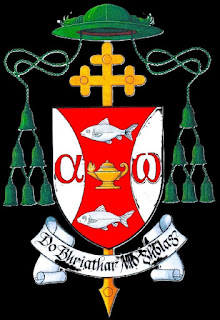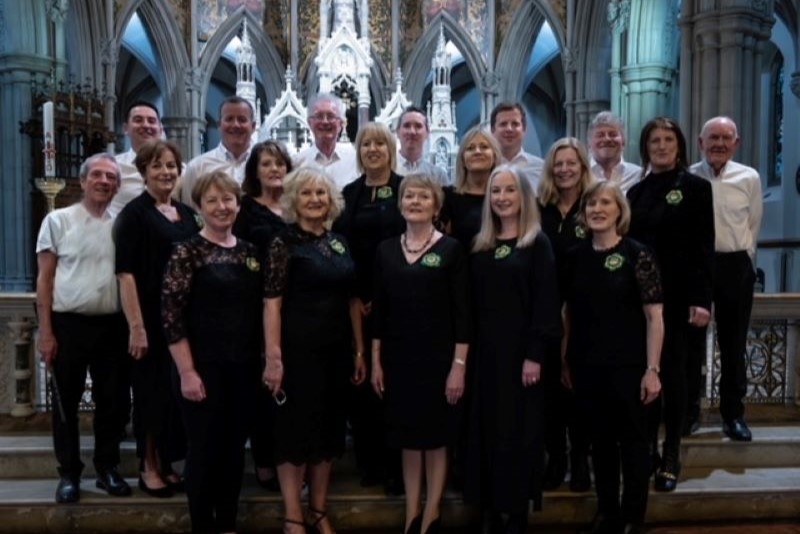Pat Buckley, the controversial independent Catholic priest and then bishop who has died at the age of 72, was one of the most outspoken individuals in the clerical world.
He described himself as the “unofficial chaplain” to those Catholics and other Christians who were disappointed and disillusioned with the religious powers that be in Ireland and overseas.
Based in Larne, Co Antrim, he was originally from Co Offaly. Having started out as part of the mainstream Catholic Church, he acted as an independent member of the clergy from 1986 onwards.
In official Catholic Church terms he was a suspended priest who had excommunicated himself after being consecrated as a bishop in 1998 by Dr Michael Cox, another independent cleric who ordained the singer Sinéad O’Connor as a priest in Lourdes on April 22, 1999.
In 1999, having learned that a news story on his sexuality was due to be published, Buckley came out as gay. The sequence of events was covered in one of his four books, A Sexual Life, A Spiritual Life: A Painful Journey To Inner Peace, published by the Liffey Press in 2004. In 2010 he married Eduardo Yanga (32) from the Philippines, in a ceremony in Larne.
In addition to his religious role, Buckley was elected as an independent councillor to the former Larne Borough Council in 1989 but lost his seat at the following election in 1993. He also enrolled as a mature student at Queen’s University Belfast, emerging with a master’s degree in social science in 1989.
In another book, A Thorn In The Side, published in 1994 by the O’Brien Press, Buckley recalled his early years in Tullamore where he was born on May 2, 1952, the eldest in a family of 17 children — 11 of whom made it to adulthood.
His father Jim was a factory supervisor and later a full-time official with the Irish Transport and General Workers’ Union in Carlow who went on to study law and was called to the bar in his 50s; his mother Josephine was a homemaker.
After attending schools in Carlow and Dublin, Buckley took two years off at 14 to work as a messenger for state transport company CIÉ. At 16 he began attending the College of Commerce in Rathmines, Dublin, where he spent two years.
He got into real trouble after deciding to minister to IRA hunger-striker Bobby Sands at the Maze Prison.
In September 1970 at age of 18 he was received into the seminary at Holy Cross College in Clonliffe, north Dublin. He was asked to resign from the seminary, which he found too strict and restrictive, in 1973. He moved to St John’s College, Waterford, and was ordained a priest on Pentecost Sunday, June 6, 1976.
Moving later to Wales, he served in four different parishes there, mainly as a curate, before returning to Dublin where he did voluntary work for the Legion of Mary and drew the dole for a time.
In the summer of 1978 he moved to Belfast and joined the Diocese of Down and Connor. He was appointed as a curate to St Peter’s Cathedral in west Belfast where he remained for five years.
Never shy about expressing his views, Buckley had a falling-out with Bishop — later Cardinal — Cahal Daly. He got into real trouble with the Catholic establishment after deciding to minister to IRA hunger-striker Bobby Sands at the Maze Prison and later, against instructions, to attend the republican’s funeral.
Buckley was moved to Kilkeel, Co Down, in January 1983 where he got involved in other controversies and in September 1984 Bishop Daly moved him to Larne, with instructions to “fade into the woodwork”.
In October 1985, the bishop said he wanted him to leave and, in summer 1986, removed him from the position as curate of Larne parish.
To become a parish priest, a canon, an archdeacon, a monsignor and a bishop you have to cease to be an individual.”
Buckley began saying mass at the house where he lived and created an oratory with about 70 seats, celebrating marriages and visiting Northern Ireland prisons. He also contracted Crohn’s disease, an inflammatory bowel condition. In his 1994 book he wrote: “To get on in the Church — to become a parish priest, a canon, an archdeacon, a monsignor and a bishop — you have to cease to be an individual.”
In 2013, Buckley admitted being involved in 14 sham marriages to help non-EU nationals acquire residency in the pre-Brexit UK. He received a three-and-a half-year jail sentence as a result, but it was suspended as he was being treated for HIV and other medical issues.
His death on May 17 was announced as follows on his online blog: “The Oratory Society regrets to inform you that Bishop Pat Buckley died peacefully this morning after a short illness. Eternal rest grant unto him, O Lord, and let your perpetual light shine upon him. May he rest in peace. Amen.”















